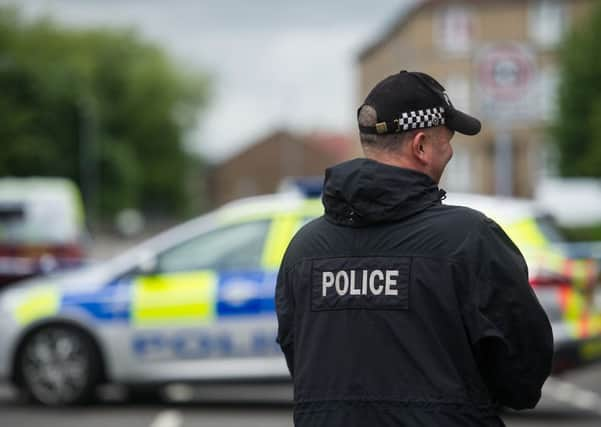Leaders: Police Scotland steps up to mark on Brexit security


Of the many concerns about what post-Brexit Britain will look like, security is one the biggest areas of uncertainty.
Many will have cast their vote in the June referendum on that issue alone. Since then Europe has witnessed the atrocity of the Nice terrorist truck attack on Bastille Day, which killed 86 people and injured hundreds of others.
Advertisement
Hide AdAdvertisement
Hide AdThe referendum came at a time when we felt under greater threat than we have in decades, with mainland Europe already under attack from terrorists.
Holding greater control over immigration was seen to be a way of stopping terrorists from getting into the country.
Those who argued for Remain claimed that the only way to effectively respond to the terror threat was to share knowledge and information as part of the EU, rather than attempt to go it alone.
We still do not know what the implications of Brexit are when it comes to security – but planning has to include a scenario where existing arrangements are dismantled.
So it makes a great deal of sense for Police Scotland to start making contingency plans by setting up its Brexit response team.
Deputy chief constable Iain Livingstone has spoken of the free movement of criminals across Europe and the changes which could be looming on the horizon if Scotland was unable to rely on Europol and the European Arrest Warrant.
Indeed, Rob Wainwright, Europol’s director, speaking shortly before the EU referendum, warned that leaving Europe would make it more difficult for UK police forces to tackle terrorism and international crime.
Mr Wainwright, a former MI5 analyst, warned Britain would become a “second-tier member of our club” and risked losing its access to a vital European security database used by British police every day.
Advertisement
Hide AdAdvertisement
Hide AdHowever, amidst the “second-tier” status warning he said he was sure Britain would follow Norway and Iceland and negotiate a form of access which was still useful but would not have direct access to Europol’s database and would be unable to lead operational projects and would lose its current influence on the organisation.
It is possible Police Scotland’s plans are ultimately not necessary, depending on the outcome of Brexit negotiations, but a viable option must be on stand-by.
This is especially so since Mr Wainwright has said it could take years to negotiate the “historic first” of vital access to the database for a non-EU, non-Schengen, country.
New arrangements with other forces are an obvious starting point. But this will take time, being made on a country-by-country basis.
There are many areas where Police Scotland has been open to criticism since the single force was set up, but it must be given credit on this occasion for acting fast.
To fail to do so would be to leave the country vulnerable to attack during the transition period – a scenario which should and must be avoided.
Build it and they will come
What excellent news to hear that a new road could be built to tackle the horrendous tailbacks of traffic which can afflict those heading to and from Edinburgh Airport.
Being stuck in traffic, crawling along with the minutes ticking by, especially in the company of fractious children or agitated individuals, is a stressful experience and puts a dampener on any notions of Scotland being at the forefront of design, technology or innovation.
Advertisement
Hide AdAdvertisement
Hide AdInstead, it casts our minds back to many other European countries we have visited with their integrated transport systems and makes us wonder why we cannot do likewise.
Of course there are times when things go smoothly but there are also set-piece events such as the Royal Highland Show, as tremendous as it is for farmers, visitors and business, when a traffic snarl-up is on the cards for anyone who goes near the airport.
There are also other instances – perhaps a traffic accident or breakdown and bad weather – or necessary road maintenance which also add to the problem.
Gordon Dewar, the airport’s chief executive, unveiling the news, highlighted how things needed to change and that a new road could bring other benefits such as kickstarting the long talked-about international business gateway park nearby.
This really is a case of “build it and they will come” and is consistent with so many of the forward-thinking developments which have acted as the catalyst to breathe new life into many areas in and around the capital city.
Edinburgh airport deserves praise for taking the initiative and having the vision to bring this much-needed development to the table.